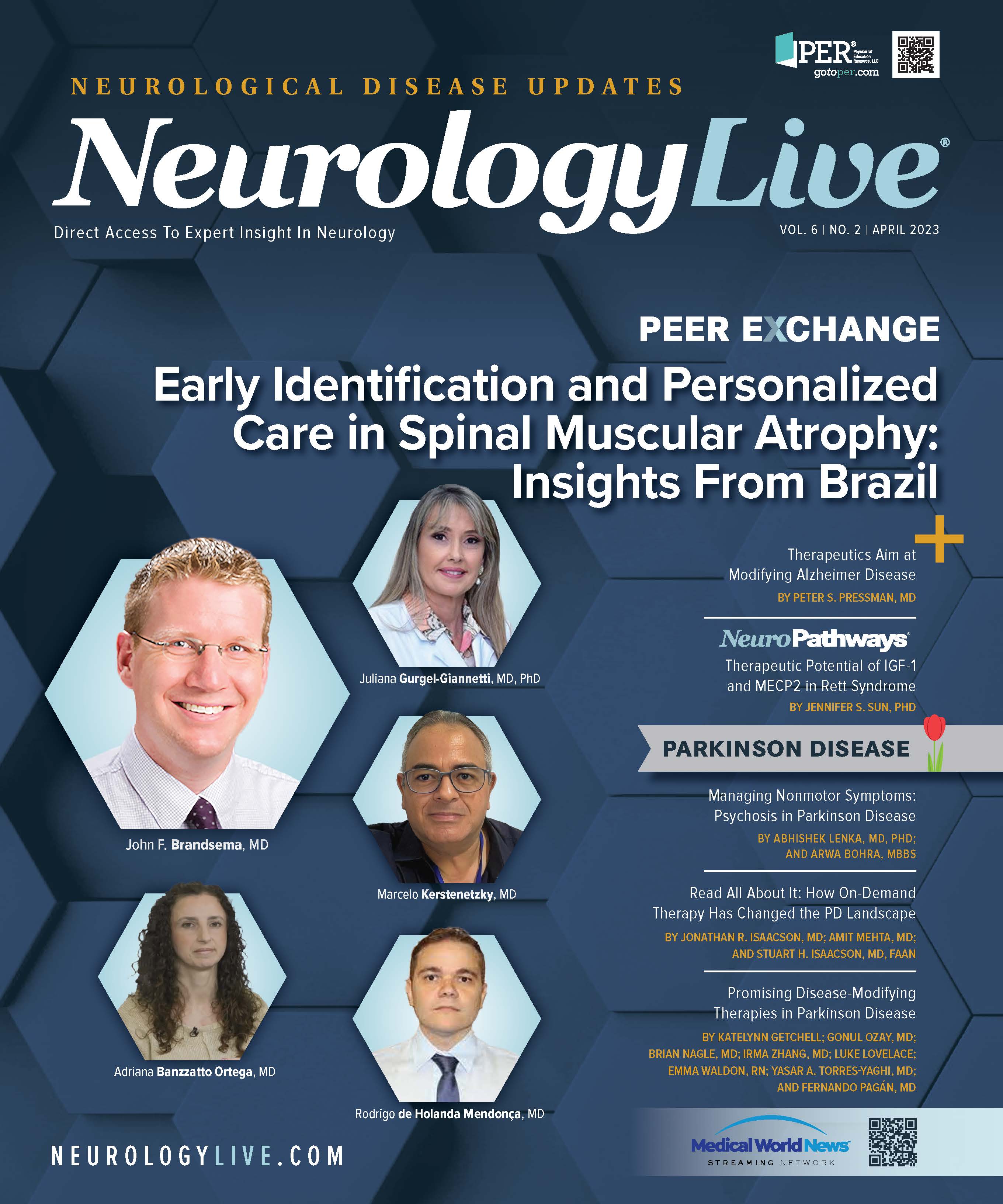The FDA has approved omaveloxolone (Skyclarys), an agent developed by Reata Pharmaceuticals for the treatment of Friedreich ataxia in adults and adolescents aged 16 years and older, making it the first and only therapy approved for the indication.1
In the supporting trial data, treatment with omaveloxolone resulted in statistically significant lower modified Friedreich Ataxia Rating Scale (mFARS) scores relative to placebo at Week 48, accounting for a placebo-corrected difference between the groups of –2.41 points (P = .0138). The therapy, an oral once-daily medication, is indicated with a recommended dose of 150 mg (taken in 3 capsules).
Notably, the treatment label indicates a recommended dosage of 100 mg once daily for individuals with moderate hepatic impairment, to be further reduced to 50 mg once daily in the instance of adverse reactions. For those with severe hepatic impairment, the treatment is not recommended.2 The label also indicates that alanine aminotransferase (ALT), aspartate aminotransferase (AST), bilirubin, B-type natriuretic peptide (BNP), and lipid parameters should be obtained prior to and during treatment.
Friedreich ataxia is a disorder that has lacked treatments for some time, presenting a clinical challenge for physicians and patients alike. The agency's decision to approve omaveloxolone was supported by the efficacy and safety data from the MOXIe Part 2 trial and a post hoc Propensity-Matched Analysis of the open-label MOXIe extension trial (NCT02255435).
“Friedreich's ataxia is a debilitating neuromuscular disease that progressively robs patients of their mobility and independence,” Susan Perlman, MD, clinical professor of neurology at the David Geffen School of Medicine of UCLA, said in a statement.1 “The approval of SKYCLARYS represents an important step forward in the treatment of Friedreich's ataxia, providing physicians with the first disease-specific treatment option approved for patients living with this ultra-rare and progressive disease.”
Warren Huff, CEO of Reata, said in a statement that the approval was "an important milestone for patients affected by this disease as well as their families and caregivers." He continued, adding, "We are grateful to Friedreich’s ataxia patients, investigators, US regulators, and our scientists and employees who made this approval possible. As a company, this is a transformative milestone that highlights our commitment to developing and commercializing novel therapies for patients with severe diseases with few or no approved therapies. We look forward to delivering Skyclarys to eligible patients as quickly as possible."1
Friedreich Ataxia Fast Facts
- Friedreich ataxia is an inherited disease that is caused by a mutation in the FXN gene, which encodes for the frataxin protein. The disease is inherited in an autosomal recessive manner, meaning that an individual must inherit 2 copies of the mutated gene, 1 from each parent, to develop the disease.
- Friedreich ataxia primarily affects the nervous system, causing progressive damage to the spinal cord and peripheral nerves. Symptoms can include problems with balance and coordination, muscle weakness, and loss of sensation in the arms and legs.
- The onset of Friedreich ataxia typically occurs in childhood or adolescence, although in rare cases, symptoms may not appear until adulthood.
- Patients with Friedreich ataxia are at an increased risk of developing cardiomyopathy, a condition where the heart muscle becomes weakened and enlarged. Patients may also experience vision and hearing problems, scoliosis, and diabetes mellitus.
- Genetic counseling is recommended for families affected by Friedreich ataxia to help them understand the inheritance pattern of the disease.
READ MORE: Assessing the Recent Progress in ALS at MDA 2023
Omaveloxolone previously received fast track designation and a rare pediatric disease designation from the FDA. Reata’s new drug application (NDA) for omaveloxolone was submitted and accepted for review in May 2022. The agency pushed the review back several months after Reata submitted additional data from the updated delayed-start analysis from the phase 2 MOXIe extension study that featured a data cut-off of March 2022, as well as a new propensity-matched analysis of the findings using patient data from the Clinical Outcome Measures in Friedreich’s Ataxia Study, and an analysis of the relevance of omaveloxolone’s target pathway, Nrf2.3,4
The company had submitted these data after a midcycle communication meeting with the FDA, at which time the agency raised concerns about the NDA. The resulting changes warranted a major amendment, prompting the extension.
At the time, Huff said in a statement, “We are pleased with the FDA’s decision to review the new information we recently provided to the Division. We remain committed to our goal of working with the FDA to secure regulatory approval for omaveloxolone as quickly as possible for patients with this severe disease that has no approved therapies.”3
In the originally published dataset from David R. Lynch, MD, PhD, professor of neurology at the University of Pennsylvania Perelman School of Medicine, and colleagues, 103 patients were randomly assigned to receive omaveloxolone (n = 51) or placebo (n = 52).5 The changes from baseline in mFARS scores in the omaveloxolone group (–1.55 points; SD, 0.69) and placebo group (0.85 points; SD, 0.64) showed a significant between-group difference of –2.40 points (SD, 0.96; P = .014). Additionally, transient reversible increases in aminotransferase levels were observed with omaveloxolone without increases in total bilirubin or other signs of liver injury.
In September 2021, Lynch told NeurologyLive®, "Theoretically, it should have some benefit on all aspects of the disease, and perhaps more importantly, for at least some period of time [it can] slow the progression, which is what the delayed-start study showed.” The following March, at the 2022 Muscular Dystrophy Association (MDA) Clinical and Scientific Conference, March 13-16, in Nashville, Tennessee, findings from that delayed-start period of the MOXIe extension study were presented by Sub H. Subramony, MD, professor of neurology at the University of Florida College of Medicine, that supported the positive primary end point findings from part 2 of the pivotal MOXIe trial.6
In that presentation at MDA, data showed that when comparing mFARS scores between both groups, investigators found that the difference at the end of the placebo-controlled MOXIe Part 2 study, which was –2.25 points (SD, 1.07; P = .037), was preserved at the conclusion of the delayed-start period, at –3.51 points (SD, 1.45; P = .016). In the open-label extension, the annualized mFARS slope for patients in the placebo-to-omaveloxolone group was 0.45 points (SD, 0.38), which was similar to the omaveloxolone-to-omaveloxolone group, at 0.27 points (SD, 0.59). Investigators noted that both slopes were less than the expected +1.9 points per year that had been observed in natural history data. For patients in the omaveloxolone-to-omaveloxolone group, they continued to show no worsening in mFARS scores when compared with their original baseline score through 120 weeks of treatment.
In addition to the news that the FDA had granted approval to the therapy, Reata announced the launch of its specialty pharmacy and patient services program, called REACH (Reata Education, Access, and Care Helpline). Those looking for additional information about the program can call 1-844-98-REACH or visit www.reataREACH.com.1
REFERENCES
1. Reata Pharmaceuticals Announces FDA Approval of SKYCLARYS™ (Omavaloxolone), the First and Only Drug Indicated for Patients with Friedreich’s Ataxia. Reata Pharmaceuticals. News release. February 28, 2023. Accessed February 28, 2023. https://www.reatapharma.com/investors/news/news-details/2023/Reata-Pharmaceuticals-Announces-FDA-Approval-of-SKYCLARYS-Omavaloxolone-the-First-and-Only-Drug-Indicated-for-Patients-with-Friedreichs-Ataxia/default.aspx
2. SKYCLARYS. FDA Label. Updated February 28, 2023. Accessed February 28, 2023. https://www.accessdata.fda.gov/drugsatfda_docs/label/2023/216718Orig1s000lbl.pdf
3. Reata Pharmaceuticals Announces Three Month Extension of the Review Period for New Drug Application for Omaveloxolone for the Treatment of Friedreich’s Ataxia. News release. Reata Pharmaceuticals. August 9, 2022. Accessed February 28, 2023. https://www.businesswire.com/news/home/20220809005508/en/Reata-Pharmaceuticals-Announces-Three-Month-Extension-of-the-Review-Period-for-New-Drug-Application-for-Omaveloxolone-for-the-Treatment-of-Friedreich%E2%80%99s-Ataxia
4. Reata Pharmaceuticals Announces FDA Filing Acceptance and Priority Review Designation for the NDA for Omaveloxolone for the Treatment of Patients with Friedreich’s Ataxia. News release. Reata Pharmaceuticals. May 26, 2022. Accessed February 28, 2023. https://www.reatapharma.com/investors/news/news-details/2022/Reata-Pharmaceuticals-Announces-FDA-Filing-Acceptance-and-Priority-Review-Designation-for-the-NDA-for-Omaveloxolone-for-the-Treatment-of-Patients-with-Friedreichs-Ataxia/default.aspx
5. Lynch DR, Chin MP, Delatycki MB, et al. Safety and Efficacy of Omaveloxolone in Friedreich Ataxia (MOXIe Study). Ann Neurol. 2021;89(2):212-225. doi:10.1002/ana.25934
6. Subramony SH, Boesch S, Chin M, et al. Efficacy of omaveloxolone in patients with Friedrich’s ataxia: update of the delayed-start study. Presented at MDA Clinical and Scientific Conference; March 13-16, in Nashville, TN and Virtual. Poster 55.

